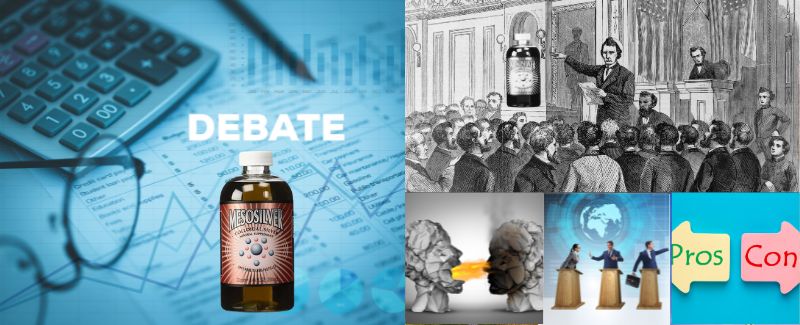
The best supplements are natural, free of additives and preservatives. However, for the past fifty years, the FDA has been tightening regulations, which poses a significant threat to small companies that provide these natural supplements. This tightening grip is largely influenced by the FDA's close ties with Big Pharma.
The Struggle Between the FDA and Natural Supplement Advocates
To understand the tension between the FDA and natural supplement enthusiasts, we need to look at the regulatory landscape and its implications for small businesses.
Read about the struggle between the FDA and natural supplement lovers by clicking here.
How Does the FDA Discourage Small Businesses and Natural Supplements?
The FDA requires approval for anything that can be considered a drug, and they are continually expanding the definition of what they regulate. For the natural supplement industry, this means increasing requirements and limiting the ability of small businesses to compete.
Key Challenges Faced by Small Businesses:
-
Costly Approval Process:
- Expense: FDA approval is costly, often beyond the reach of small companies.
- Time-Consuming: The process can take years, during which small businesses struggle to survive without their products on the market.
-
Expanding Regulations:
- Broad Definitions: The FDA’s expanding definitions of what constitutes a drug mean more natural supplements fall under stringent regulations.
- Increased Requirements: New requirements for testing and reporting create additional financial and operational burdens.
-
Competitive Disadvantage:
- Big Pharma Advantage: Large corporations have the resources to navigate the FDA’s complex approval processes and lobby for favorable regulations.
- Hidden Negative Effects: With their financial clout, these companies can sometimes hide the negative effects of their products, unlike small businesses that must disclose every detail to survive scrutiny.
Why Are the FDA's Policies Problematic?
Originally, the FDA was established to protect consumers from harmful food and drug products. However, their powers have expanded to the point where all products, not just potentially dangerous ones, must be approved.
Bias and Influence:
-
Government Interests:
- Corn Subsidies: The FDA’s associations with government interests have led to widespread use of high fructose corn syrup, despite health concerns.
- GMO Crops: Most high fructose corn syrup comes from genetically modified crops, which are controversial and potentially dangerous according to some research.
-
Business Interests:
- Big Pharma and GMO Producers: These companies can push their products through the FDA’s approval process more easily due to their financial resources.
Independent Research and Regulation:
- Lack of Independent Testing: The FDA does not conduct its own research and rarely considers independent studies. This reliance on company-provided data can allow harmful side effects to go unnoticed.
- Insufficient Oversight: The FDA cannot regulate all products entering the country, leading to issues like poisoned dog food and contaminated baby food.
Implications for Consumers
Short-Term Effects:
- Business Closures: Many natural supplement manufacturers and retailers may be forced out of business.
- Rising Prices: Prices for natural supplements will increase as companies try to cover the costs of compliance.
Long-Term Effects:
- Decreased Availability: Natural supplements, whether herbal, vitamin, or mineral, may become unavailable.
- Health Impact: Consumers who rely on natural supplements for proactive health management may suffer due to lack of access to these products.
What Can You Do?
Be Proactive:
-
Stay Informed:
- Follow news about FDA regulations and their impact on the natural supplement industry.
-
Advocate:
- Write to your congressman to express concerns about over-regulation.
- Raise awareness through social media, blogs, and community discussions.
-
Share Your Success Stories:
- Use platforms like Facebook, Twitter, and health forums to share how natural supplements have benefited your health.
- Encourage others to do the same to build a collective voice.
Conclusion
Over-regulation by the FDA threatens the natural supplement industry, potentially driving small businesses out and limiting consumer access to natural health solutions. By staying informed, advocating for fair regulations, and sharing personal success stories, consumers can help protect the availability of natural supplements and ensure they remain an option for those seeking holistic health solutions.









